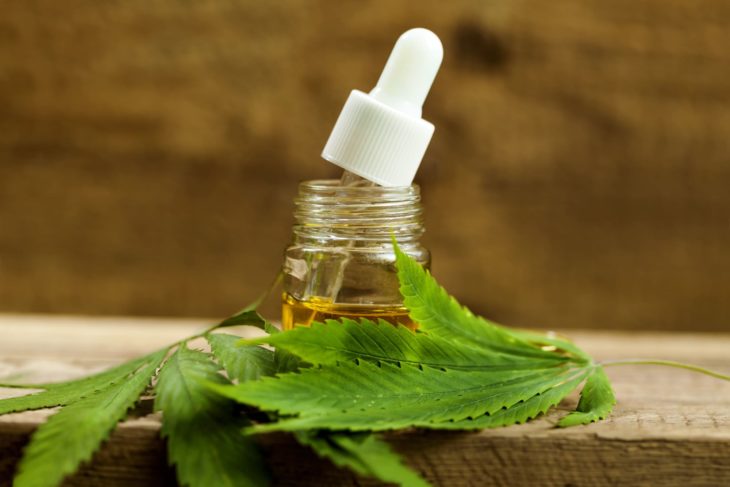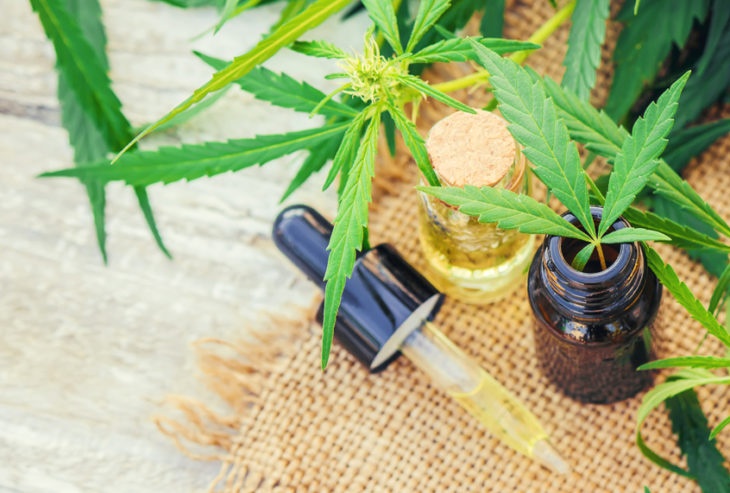Cannabidiol products, better known as CBD products, have gone through a real renaissance in recent years. The chemical compound found in the Cannabis sativa plant, commonly referred to as either marijuana or hemp, and is a natural substance used for treating various ailments in the human body. From easing pain and lowering the levels of anxiety, a number of different CBD products exist on the markets all over the world with millions of happy customers eagerly returning to their favorite products, but also trying new ones.
CBD products come in many shapes and forms, and there are various ways of consuming them. Most common of these including traditional smoking, and the more modern type of inhaling called vaping. Other types of introducing CBD to your system include edible products like sweets and various snacks, and topical products including a whole range of skincare-inspired creams, balms, and serums. For this article, however, the most important way of CBD consumption are oils. Like any other essential oil, CBD oil has multiple uses, one of the most useful of which is arthritis treatment.
Arthritis is an ailment that bothers millions. It is defined as the swelling and/or tenderness of a joint in the body, or several joints. The most notable symptoms include pain in and around the joint, stiffness of the joint, and an overall discomfort of the whole joint area. Two arthritis types found in most patients include rheumatoid arthritis and osteoarthritis.
If you have ever wondered if CBD oil can truly help with pain relief enough to treat your arthritis, continue reading this article. There is going to be more word on the overall effects of the oil, as well as how exactly it can help arthritis patients. To find out even more and to order some CBD oil, visit trythecbd.com.

Source: deepsixcbd
Contents
What is CBD Oil?
As mentioned, CBD occurs naturally in the cannabis plant. It is not a psychoactive chemical, since plants will less than 0.3% THC are legal for medicinal and other uses. Everything else is considered psychoactive and therefore treated differently, often as traditional marijuana that gives the user the “high.”
CBD oil is made by extracting CBD from the plant using various processes. Oil infusion, winterization, distillation, or CO2 extraction are all viable when producing CBD oils. The products vary in quality and price, with the top-tier products of course being the most effective in treating ailments. CBD oil has really taken the world by storm, mostly due to the ease of use and convenience.

Source: Arthritis National Research Foundation
Treating Arthritis Pain
In the USA alone, more than 50 million people suffer from arthritis, most notably osteoarthritis (OA) and rheumatoid arthritis (RA). Since CBC products like oil have appeared, people now have a very useful solution for treatment, but does it actually work? There have been multiple studies on this over the years, most of which suggest that it does work.
One of the earliest studies was carried out in 2011. It suggested that CBD helps in the reduction of inflammatory pain in rats, by affecting the pain receptors and their response to stimuli. Then in 2014, another study on animals suggested that CBD could help with the treatment of OA. Two years later in 2016, a third study found out that topical CBD application of oils and creams could potentially relieve arthritis-related pain and inflammation. Three years ago in 2017, CBD was deemed possibly safe, useful, and beneficial for pain caused by OA in the joints.
Still, there has to be more such research carried out on a larger amount of subjects before anyone could say with 100% certainty that CBD oils and other CBD products effectively treat arthritis-caused pain. Science is truly on the right path and everything points to the outcome in which people are encouraged to use CBD oils whenever they experience such issues as OA or RA.

Source: maroubraroadphysio
CBD Oil and Chronic Pain
CBD works in such a way that it attaches to the receptors in the immune system and the brain. According to cbdcentral.com, once there, they influence the body in different positive ways, easing pain and discomfort and relaxing the entire being.
One of the receptors CBD finds its way to is known as the CB2 receptor. It has a large role in our immune system because it is in charge of managing pain and inflammations. It is believed by scientists and researchers that CBD attaches itself to this receptor, helping the immune system ease off the pain.
Research from 2008 found it possible that this mechanism could play a significant role in chronic pain often caused by arthritis.

Source: salon
Using CBD Oil
CBD oils can be used in several different ways. First of all, oils can be inhaled from vaping devices known as vapers, or vape pens. Various different flavors of such oils are available for purchase. Although inhaling it has a fast effect, it not always advisable because it is not good for the respiratory system and the lungs.
A far better way of consuming CBD oil is orally. Most people like to take it directly from the dropper bottle. A general rule is to use about a quarter of the dropper daily if you are a beginner, and do so for a week or two. Then you can gradually move to half a dropper during week three or four, and finally to three quarters and a full dropper per day once you feel like you are used to it.
Dropping oil straight into your mouth takes longer to work, from 20 to 30 minutes, but it could potentially last for a few hours. You could also add the desired amount to your favorite drinks. People find it pleasurable to pour the dosage into a cup of tea, lemonade, or fresh juice. Even a glass of water works fine. Basically, like most other things, it all comes down to personal preference.

Source: nationalpainreport.com
Risks, Side Effects, and Considerations
Like with any other medicinal or semi-medicinal substance, it is a good idea to consult with your doctor before using it. There are no major risks to taking CBD oil for arthritis, but some individuals may experience side effects like fatigue, diarrhea, or slight changes in appetite or weight. Most CBD oil products are not yet FDA-approved for arthritis treatment. The only thing the FDA has approved so far is using CBD for treating two kinds of epilepsy, back in June of 2018. In addition, CBD products are not legal everywhere, so aside from consulting your doctor, some research is also needed to prevent legal trouble.
